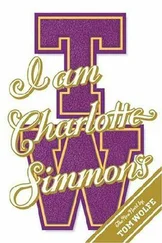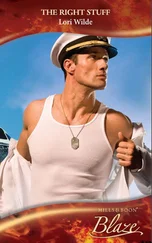Tom Wolfe - The Right Stuff
Здесь есть возможность читать онлайн «Tom Wolfe - The Right Stuff» весь текст электронной книги совершенно бесплатно (целиком полную версию без сокращений). В некоторых случаях можно слушать аудио, скачать через торрент в формате fb2 и присутствует краткое содержание. Жанр: Современная проза, на английском языке. Описание произведения, (предисловие) а так же отзывы посетителей доступны на портале библиотеки ЛибКат.
- Название:The Right Stuff
- Автор:
- Жанр:
- Год:неизвестен
- ISBN:нет данных
- Рейтинг книги:3 / 5. Голосов: 1
-
Избранное:Добавить в избранное
- Отзывы:
-
Ваша оценка:
- 60
- 1
- 2
- 3
- 4
- 5
The Right Stuff: краткое содержание, описание и аннотация
Предлагаем к чтению аннотацию, описание, краткое содержание или предисловие (зависит от того, что написал сам автор книги «The Right Stuff»). Если вы не нашли необходимую информацию о книге — напишите в комментариях, мы постараемся отыскать её.
The Right Stuff — читать онлайн бесплатно полную книгу (весь текст) целиком
Ниже представлен текст книги, разбитый по страницам. Система сохранения места последней прочитанной страницы, позволяет с удобством читать онлайн бесплатно книгу «The Right Stuff», без необходимости каждый раз заново искать на чём Вы остановились. Поставьте закладку, и сможете в любой момент перейти на страницу, на которой закончили чтение.
Интервал:
Закладка:
As he neared the completion of his sixth and last orbit, Wally announced that he had 78 percent of the fuel left in both the automatic and manual systems. He had flown twice as far as Glenn or Carpenter, and he could have gotten through another fifteen orbits or so if he had to. One of Kraft's lieutenants, an engineer named Gene Kranz, came on the circuit and said to Wally: "Now that's what I call a real engineering test flight!"
Scott picked up the message in his central nervous system even before his mind analyzed it. Unlike the last one , the man was saying. There was even a hint of… unlike the last two .
To complete an operational triumph Schirra now had only to land on target. Carpenter had landed 250 miles off the mark. As he began his descent toward the atmosphere, Wally told Al Shepard, the capcom on Bermuda, near the target area, "I think they're gonna put me on the number-three elevator." He was talking about the number-three elevator used for moving aircraft up to the flight deck on the carrier Kearsage , This was a bit of the Schirra metonymy for "squarely on target." Oh, yes! And in fact he landed just 4.5 miles from the carrier. The swabbos crowding the flight deck could see him coming down under his big parachute. Carpenter had found the capsule uncomfortably hot once he splashed down and had crawled out through the neck of the capsule and waited on his life raft for the rescue planes. Glenn had also complained of the heat. Schirra's suit had an improved cooling system, and he was willing to stay in the capsule indefinitely. He refused a helicopter's offer of a lift to the carrier. What was the rush? He stayed in the capsule while a crew of swabbos in a motor-driven whaling boat towed him back to the carrier. Once he was on the Kearsage he told the doctors: "I feel fine. It was a textbook flight. The flight went just the way I wanted it to."
That became the verdict on Schirra's performance: "A textbook flight." He had done everything on the checklist. He had turned in a hundred percent performance. He had successfully proved that a man could ride around the earth six times and barely turn a hand or move a muscle and hardly use an ounce of fuel or expend an extra heartbeat and never, not for a moment, surrender to psychological stress, and ride the ship down to a designated drop in the vastness of the ocean. Sigma, summa, Q.E.D.: Operational !
Wally came back to celebrations in Houston and Florida and a big Wally Schirra day in his hometown of Oradell, New Jersey. The next day he went to the White House for congratulations by President Kennedy, and the President presented him with the Distinguished Service Medal. It all turned out to be rather brief and unceremonious, however, and something of a disappointment. A little chat, a few grins, a few photographs with the Chief Executive in the Oval Office, and that was it. The date was October 16. In time Wally would learn that Kennedy had just seen photographic evidence, from U-2 flights, that the Soviets had set up missile bases in Cuba. The President had kept his appointment with the astronaut only to maintain appearances, to prevent word from getting out about the critical situation that was developing.
14 — The Club
By and by Conrad started carrying Glenn's bag, as well as his own, and facing up to the role. It was the only sensible thing to do. Otherwise, the two of them would arrive at some airport, St. Louis, Akron, Los Angeles, wherever, and it would take them five minutes to walk forty feet. The autograph seekers came in waves. Every few steps Glenn would have to put his bag down and sign some more autographs and shake some more hands. Actually he was great at it. That big sunny freckle-faced smile of his lit up the place. People came up to him as if they knew him personally and loved him. He is my protector. He risked his life and challenged the Russians in the heavens for me . They adored him so much it would have been hard for him to brush past them, even had he been of that sort of disposition. So he would put his bag down and sign some more autographs, and the two of them would have to stop.
If Conrad carried both bags, they could keep moving. Glenn could wave and sign autographs and shake hands and chat and beam that terrific smile at everybody in transit without seeming rude. As for Conrad, he was in absolutely no danger of having to stop and put down the bags. He was now an astronaut, officially, but not to the mobs of autograph seekers. They couldn't have cared less. He looked like some little guy who carried bags for John Glenn. What was more, that was what he felt like. That was about all the second group of astronauts was doing: chores for the first, for the one, the only, the Original Seven. Conrad, as part of his training, had been accompanying Glenn in his travels. Now that Project Mercury was drawing to a close, Glenn was supposed to make Project Apollo, the moon program, his "area of specialization." He was visiting the factories of the major contractors, just as he had in the early days of Mercury. Conrad's area of specialization, officially, was "cockpit layout and systems integration"; but mainly he was… with John Glenn. John Glenn visiting the factory took on the aura of the general coming to inspect the troops. He was a magnet for every sort of VIP who could get next to him, particularly congressmen and senators. There were times when senators actually pushed—elbowed! hipped! bellied!—secretaries, stenographers, and other mere gawkers out of the way to get next to Glenn's fabled hide and speak to him and grin a great deal. Standing by, all the while, would be an unknown young man, the single-combat hero's valet, apparently, his batman, as the British Army called military servants. Namely, the anonymous Lieutenant Conrad, Group II Astronaut.
Nevertheless, Conrad had made it this time, and that was the main thing. That was all that any really competitive military pilot upon the great ziggurat could focus on any more: becoming an astronaut. By now, only three years later, any such session as he and Wally Schirra and Alan Shepard and Jim Lovell and the others had gone through at the Marriott motel in February of 1959… it was hard to believe it could have ever taken place. Remember Wally that night? Wally!… adding up the pros and cons and agonizing over what the space program might do to his chances of commanding a squadron of F-4Hs! And now Wally—the same Wally with whom they had gone waterskiing on Chesapeake Bay, with whom they had weathered that bad string at Pax River, the old affable prankster himself—now Wally stood at the very apex of the great invisible pyramid of flying. For the seven Mercury astronauts had become the True Brotherhood. They were so dazzling you couldn't even see the erstwhile True Brethren of Edwards Air Force Base any longer.
In April, when NASA announced it was accepting applications for a second group of astronauts, both Conrad and Jim Lovell had looked like good bets this time around, since they had been among the thirty-one finalists in the original selection process. Conrad was stationed at Mira-mar, California, requalifying for a phase of the Navy fighter jock's training he had already been through, which was night carrier landings. There was a good reason why night carrier landings required requalifying time; even, as in Conrad's case, after training as a test pilot at Patuxent. Night landings were a routine part of carrier operations—and perhaps the best of all examples of how a man's accumulated good works did him no good whatsoever at each new step up the great pyramid, of how each new step was an absolute test, and of how each bright new day's absolutes—chosen or damned—were built into the routine. By 1962 the Navy had already shifted over to light-beam systems using angled mirrors and Fresnel lenses at the end of the flight deck. Conrad and the rest of them going through night carrier training at Miramar did not have to depend on a landing-signal officer standing at the end of the deck in a luminescent orange suit waving a pair of luminescent orange wigwag flags. At night—to the pilot way up there in the dark—there was now a blob of light, known as the meatball , rising and falling on a dimly perceived little slab in the middle of the ocean. The shining blob, the motherless meatball, was rising and falling because the heaving greasy skillet did not stop wallowing in the waves simply out of respect for the night. The carrier was plowing on away from you, into the wind, and therefore into the waves, and therefore was pitching up and down—five, eight, even ten feet at a gulp. On a night when the clouds were low and the moon was obscured, when the sky was black, the ocean was black, and the deck was black, the little meatball (no more than an inch high from up there) and the lights on the ship were like a single low-wattage comet, dim and lurching through the vast blackness of the universe, and the pilot was expected to have the will, the moxie, the illustrious, the all-illuminating stuff to bring a five- or ten-ton jet fighter onto that dim drunken astral plate at 125 knots. In training he had a limited number of passes down the invisible glide path. If he couldn't bring himself to make contact with the deck for so long that his fuel ran low, then the word bingo ! sounded over his earphones, and he had to return to land, to the training base, where the landing strip didn't move when you approached it… and where everybody on the flight line would know that another poor sad bingo was coming into a safe haven, having funked it in the business of night carrier landings. A persistent case of the bingos was enough to wash a man out of night carrier landings. That did not mean you were finished as a Navy pilot. It merely meant that you were finished so far as carrier ops were concerned, which meant that you were finished so far as combat was concerned, which meant you were no longer in the competition , no longer ascending the pyramid, no longer qualified for the company of those with the right stuff. To have every recommendation in the book as a test pilot, to have survived bad strings galore, meant nothing when such a thing happened. Chosen or damned! (It could blow at any seam.) There were nights when that little meatball way down yonder on the deck was jumping around like the silver BBs in those maddening games you hold in the palm of your hand, and a pilot would have to drive his F-4, a big fifteen-ton brute, down onto the deck through sheer willpower, drive it down practically like a nail . Anything—even the Great Kaboom!—was better than hearing bingo over your earphones. To bingo out of a carrier landing after eight years of military flying, after completing test-pilot school at Pax River, after becoming the top of the breed… now, there you had something unthinkable.
Читать дальшеИнтервал:
Закладка:
Похожие книги на «The Right Stuff»
Представляем Вашему вниманию похожие книги на «The Right Stuff» списком для выбора. Мы отобрали схожую по названию и смыслу литературу в надежде предоставить читателям больше вариантов отыскать новые, интересные, ещё непрочитанные произведения.
Обсуждение, отзывы о книге «The Right Stuff» и просто собственные мнения читателей. Оставьте ваши комментарии, напишите, что Вы думаете о произведении, его смысле или главных героях. Укажите что конкретно понравилось, а что нет, и почему Вы так считаете.











